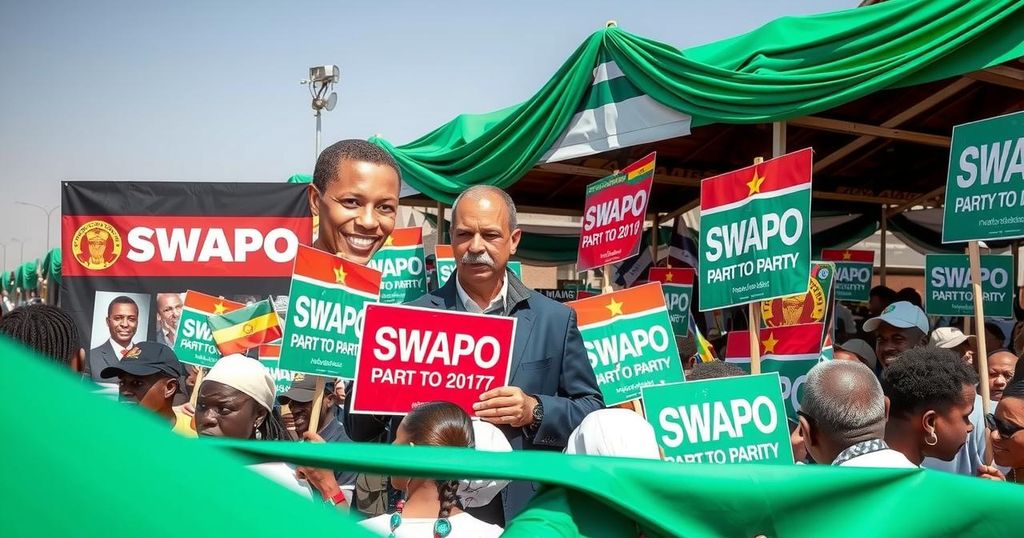Namibia’s Elections Highlight Evolving Political Dynamics in Africa

Namibia’s governing party, Swapo, has retained power but experienced significant losses in recent elections, reflecting a broader trend in sub-Saharan Africa where ruling parties face rising voter dissatisfaction. Economic downturns, public intolerance toward corruption, and the emergence of active opposition have fueled this backlash. Notable electoral declines were observed in several countries, raising questions about the future of incumbents in the region’s political landscape.
Namibia’s governing party, Swapo, has successfully maintained its power for over three decades but has experienced a significant reduction in its dominance following recent elections. Official results revealed that Swapo’s candidate, Netumbo Nandi-Ndaitwah, secured the presidential position with 57% of the vote, making her the first female leader of the country. However, opposition parties have contested the legitimacy of the results due to logistical issues and allegations of irregularities during the elections. Notably, while Swapo increased its presidential vote share, it simultaneously faced its worst-ever parliamentary performance, losing 12 seats from its previous total of 63, raising questions about its electoral strategy and public support.
This scenario reflects a broader trend across sub-Saharan Africa in 2024, where many ruling parties have struggled during elections. An array of factors, including economic downturns, growing public discontent regarding corruption, and the emergence of assertive opposition parties, have contributed to this electoral backlash. Observers have noted that numerous longstanding ruling parties have experienced considerable defeats, such as Botswana’s Democratic Party, which saw its parliamentary representation drastically reduced, and Mauritius’s governing coalition, now relegated to mere two seats in parliament following substantial losses to the opposition.
The political climate within several African nations has been characterized by increased voter engagement and heightened scrutiny of government efficiency. In Senegal, where the opposition triumphed under challenging circumstances, evidence points to a populace unwilling to tolerate perceived governmental overreach. Additionally, in South Africa, the African National Congress maintained power but achieved less than 50% of the vote for the first time since 1994, indicating potential instability.
This year has marked significant changes in African politics, demonstrating a potential shift towards increased democratic accountability and public engagement, although regions noted for government stability have shown surprising electoral volatility. Observers are keenly monitoring upcoming elections, such as those in Ghana and Malawi, as further opposition victories could signal shifting patterns in governance across sub-Saharan Africa.
The political landscape in sub-Saharan Africa has undergone significant changes, particularly following the series of elections held in 2024. This year has been marked by striking electoral outcomes that defy expectations for many ruling parties traditionally viewed as strongholds of power. With increased public scrutiny over governmental actions, particularly concerning corruption and economic management, opposition parties have capitalized on these sentiments. This context leads to a deeper understanding of why incumbents are experiencing challenges at the polls, indicating a potential paradigm shift within African politics.
The electoral landscape in Namibia and other parts of sub-Saharan Africa has undergone transformative changes in 2024, as incumbent parties face rising discontent from voters. Factors including economic challenges, rampant corruption, and civil society mobilization have created an environment ripe for opposition victories. Such developments indicate a resilient democratic spirit within the region, countering global perceptions of declining democratic practices. As future elections loom, governance and accountability are expected to remain at the forefront of public demand.
Original Source: www.bbc.co.uk







